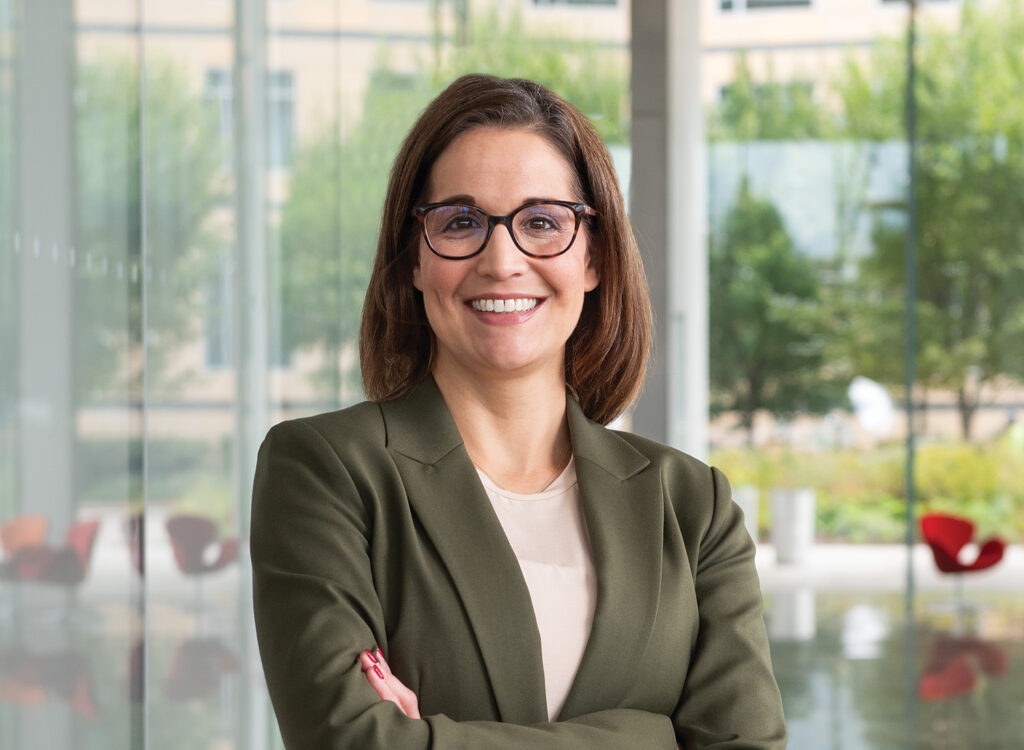A Closer Look: Joe Riley
Chief operations officer, Rantizo

Joe Riley joined Rantizo early this year as chief operations officer, bringing a wealth of experience in the energy and agricultural implements sector to the Iowa City startup.
Drone services provided by Rantizo are the natural next evolution for the precision agriculture industry, Riley said. Even before he joined Rantizo, the company had already launched sanitization spraying services for large venues early last year after a sports facility inquired, hoping to use aerial drones to mass-sanitize venue seating as part of a plan to keep attendees safe once COVID-19 recommendations allowed in-person events again. The service is still very new to Rantizo and its customers, but drone delivery is proving to be a flexible solution to a variety of applications, Riley said.
“We’ve really created a very special and unique opportunity with drones,” he said. “Sanitization is still relevant, and we can help make the venues that are going to be hosting people safe. We know that we can get coverage and do it safely and effectively and autonomously. That’s the beauty of having a drone go out and spray something — you don’t have to have a backpack on somebody with [personal protective equipment]. The safety side of what we’re doing is really a big deal.”
What led you to this role?
Out of school I got into the wind energy industry when it was just coming up, then I jumped into the ethanol and biodiesel industry. I started a couple of companies with my dad that were focused on these new industries.
From there, I took a year off and traveled with my family. … Twenty-eight countries over nine to 10 months. It was magical. We couldn’t do that today, so I’m grateful for that experience. After that, I was president of Countryside Tank Co. in Osceola. [Following Countryside,] I ran Terravest Industries, a company that builds equipment tanker trailers for agricultural inputs and energy inputs, many of which go into agriculture. After transitioning [Terravest] to a new owner, Michael Ott, [Rantizo’s] CEO who I’ve known for 15 years, we connected through Sukup Manufacturing and found an opportunity to work together.
Traveling 28 countries in one year is not a light decision to make with a family. How did that come about?
Our youngest was 4, and [the other boys] would have been 8 and 14, and my oldest would have been 20 or 21.
When my wife and I got married, we said if we had the opportunity to show our children the world, it was our duty to do so. Nothing fights against ignorance better than travel. If you can show your children the world, they have a much more relevant perspective on what reality is.
What stood out to you after this trip?
How grateful and special it is to be in Iowa, particularly in Polk County. We have something very special here that billions of people would make tremendous sacrifices to be where we are, and to have what we have. That’s clean water, clean air, the freedom, opportunities, and the education that we can get in Central Iowa is something that I took for granted before we left.
What drew you to Rantizo?
Within my career I’ve been involved in renewable energy. That was a pioneering time in Iowa when I was in the wind energy industry, and a pioneering time in the ethanol and biodiesel industry. Now we’re in this automation and precision ag pioneering time. It’s the opportunity to engage and be a forerunner in another evolution of agriculture. It’s exciting to make an impact, to be a part of something that’s both novel and a big step in a change for agriculture.
There’s a tremendous amount of data out there. There are drones that fly over and take pictures of weeds, there’s drones that fly over and do spectrometry or imagery to identify deficiencies in nutrition, or that identify diseases or pests. The standard practice is to either not treat [anything] or treat everything, even if it’s not necessary. The opportunity to be prescriptive and take a scalpel-type approach to a program, rather than broader strokes, brings opportunities for efficiencies for the growers’ profitability and for environmental stewardship.
What Rantizo brings is that you can actually make a decision and act on that decision in a way that is not [affecting] the entire field. It allows for a more nimble approach, a more flexible approach. Decisions can be made very quickly, and you can treat something before it spreads and before it becomes a big problem that you treat the whole field for.
The Pareto principle says that 80% of your consequences are caused by 20% of your problems. … It’s the pain-in-the-neck parts of the field — for example, the corners, or if there’s an irrigation pivot. Those are the 20% that slow down the farmers in the application of whatever chemistry they’re putting on. If you can treat those areas and clean them up, then the ground rakes or aerial applicators can come in and treat the rest much more efficiently.
What are your goals for Rantizo in the next year?
My goals for the company are to drive a high level of customer satisfaction, to drive a high level of customer service, operational excellence, scaling and growth of the company. [We are] finding ag retailers to partner with to grow the base of precision ag teams that are going to be working with us. … That way, we can achieve the vision of this next leveling-up of agriculture, to achieve what we need.
How has Rantizo progressed its sanitizing services?
There’s a lot of interest in venue sanitization. In 2020 we still didn’t see a lot of people going to venues. We found that there’s a lot of people promoting [sanitization services], but few had a licensure and insurance and know-how that Rantizo has. There is still significant interest, but it’s this balancing of what the reality of the need is. You still see empty stands in a lot of places, with pictures, rather than people, so that need might not be there today. But we’re the only certified, ready-to-go company in that way. Our contractors are continuing to pursue sanitization services, and we’re ready to serve when they need us here.
What’s the best piece of advice or feedback you’ve received?
Always put your customers first. Listen and be present in the moment.
What have you been reading/watching/listening to lately?
I’m currently reading “Measure What Matters” [by John Doerr] and “The Founder’s Mentality” [by Chris Zook and James Allen], and I’m listening to the Staves’ album “Good Woman.” Also, the podcast “The Knowledge Project.” It talks about mental models with really incredible interviewing. This guy gets high-level folks to talk about the different way people think about things, and the models to acknowledge [it] as you’re thinking through decisions or reacting to something. … If you know your confirmation bias, then it’s easier to manage it rather than going through life with your bias.










